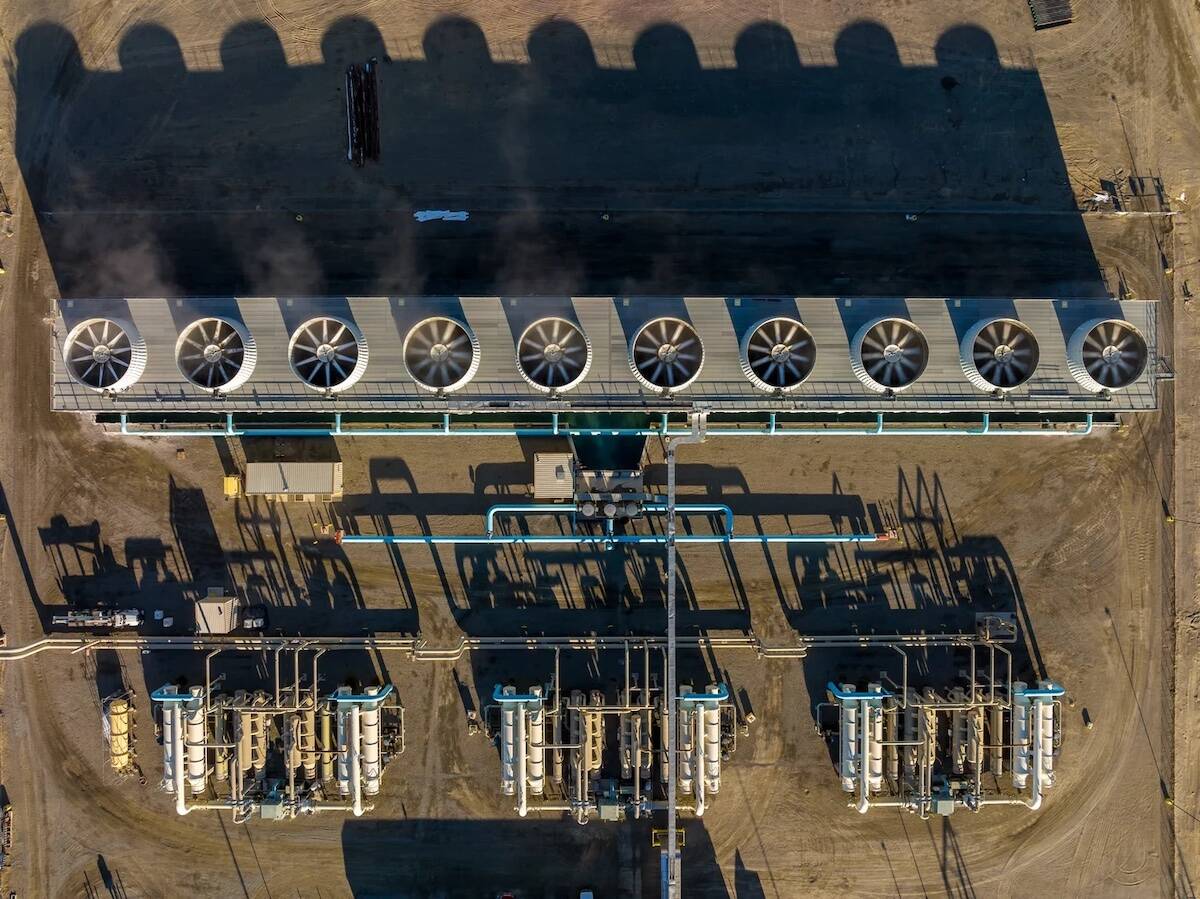Google Goes Geothermal To Power Some Bitbarns

Google has added a novel form of geothermal power to the list of carbon-free energy sources fueling its data-crunching empire.
This week the ads and search behemoth, working in collaboration with startup Fervo Energy, brought a "first-of-its-kind" enhanced geothermal power plant online in Nevada to supplement more traditional carbon-free energy sources like wind power and solar energy.
Those, Google noted in its blog post, have been a cornerstone of its move away from fossil fuels – but can't produce power continuously and often require large acreage to exploit fully.
The geothermal plant built with Fervo has been under development since 2021. It uses heat generated by the Earth's crust to boil water into steam, which is then converted into power.
According to Google, the process involves techniques developed for the oil and natural gas industry to bore two wells 8,000 feet (about 2.43km or 400 giraffes) below the surface. These wells are then extended laterally in parallel to one another. The rock between the lateral sections of wells is fractured, to create channels through which water can flow.
Once this is done, cold water is pumped down one of the wells, through these cracks, where it's heated and forced out the other well. Fervo claims that when using this technique it has observed temperatures as high as 191˚ Celsius.
This heat is then converted to electricity using steam generators. Unlike some other power plants we've seen from the likes of Microsoft and Amazon, this one is actually connected back to the local grid – serving the local community and offsetting the power requirements of Google's datacenters near Reno and Henderson, Nevada.
So how much power have Fervo and Google managed to pull from the depths of the Earth? According to an earlier Fervo blog post detailing the project, it's about 3.5 megawatts. This might be enough to power about 750 homes, but it isn't nearly enough to satisfy a typical datacenter campus – they often have capacities measured in the tens of megawatts.
We suspect this is why Google is describing the tech as a "supplement" to wind and solar. That said, the Department of Energy reports that the US could unlock upwards of 120 gigawatts of geothermal capacity by 2050 – enough for about 16 percent of the nation's anticipated energy needs. Fervo is also exploring an even larger deployment in Utah that it says could produce upwards of 400 megawatts of power.
Google is also working with InnerSpace to evaluate future opportunities for geothermal power generation. The application of the technology, the cloud provider notes, is somewhat limited by geography. From what we gather, it's more economical to deploy the tech in locations where the crust is thinner and heat is closer to the surface.
While geothermal power may be able to provide Google and others a steadier supply of renewable energy, the question of water consumption naturally bubbles to the surface. It's a growing concern among datacenter operators.
It's not clear how much water is lost or consumed by these plants. We imagine a fair bit of the water must be recycled back into the system – otherwise the tech would likely be unviable in arid climates like, say, Nevada and Utah – but we've contacted Google and Fervo for more information on the power plant's drinking habits.
- Vertiv goes against the grain with wooden datacenters for greener bytes
- Server shipments to fall 20% this year, but AI means vendors still raking it in
- Datacenter architect creates bonkers designs to illustrate the craft, and quirks, of building bit barns
- Greenpeace calls out tech giants for carbon footprint fumble
Google isn't the only tech giant investigating alternative energy sources to keep its growing datacenter footprint from conflicting with its sustainability goals. To support its growing power demands, Microsoft is looking for partners to help it deploy small modular nuclear reactors. It has even signed a power purchase agreement with fusion startup Helion Energy – should it ever manage to make the idea work.
Meanwhile, colocation providers like Equinix are investigating the potential use of green hydrogen fuel cells to power their facilities. ®
From Chip War To Cloud War: The Next Frontier In Global Tech Competition
The global chip war, characterized by intense competition among nations and corporations for supremacy in semiconductor ... Read more
The High Stakes Of Tech Regulation: Security Risks And Market Dynamics
The influence of tech giants in the global economy continues to grow, raising crucial questions about how to balance sec... Read more
The Tyranny Of Instagram Interiors: Why It's Time To Break Free From Algorithm-Driven Aesthetics
Instagram has become a dominant force in shaping interior design trends, offering a seemingly endless stream of inspirat... Read more
The Data Crunch In AI: Strategies For Sustainability
Exploring solutions to the imminent exhaustion of internet data for AI training.As the artificial intelligence (AI) indu... Read more
Google Abandons Four-Year Effort To Remove Cookies From Chrome Browser
After four years of dedicated effort, Google has decided to abandon its plan to remove third-party cookies from its Chro... Read more
LinkedIn Embraces AI And Gamification To Drive User Engagement And Revenue
In an effort to tackle slowing revenue growth and enhance user engagement, LinkedIn is turning to artificial intelligenc... Read more

